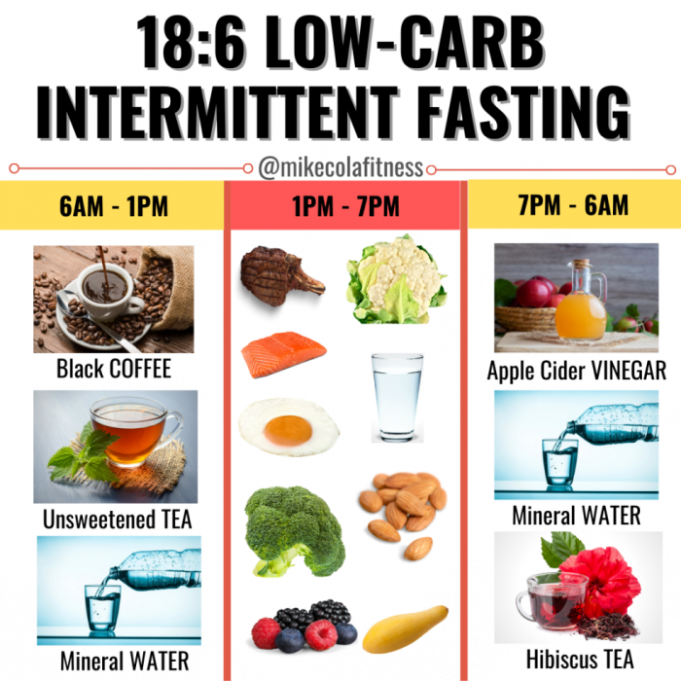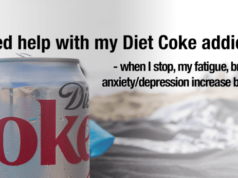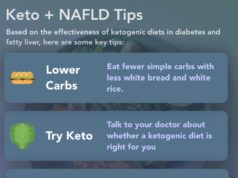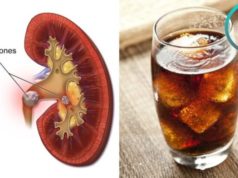Do diet drinks break a fast? This question has sparked debate among those seeking the benefits of intermittent fasting. While diet drinks may seem like a calorie-free alternative, their impact on the body’s metabolic state during fasting remains a topic of ongoing research.
The allure of diet drinks lies in their ability to satisfy cravings without the added calories of sugary beverages. However, artificial sweeteners, the primary ingredient in these drinks, have been shown to influence the gut microbiome, blood sugar levels, and hormonal responses. This raises concerns about their potential to disrupt the delicate balance of the body during fasting, potentially hindering its intended benefits.
Understanding Fasting and its Mechanisms
Fasting is a practice that has been around for centuries, with roots in various cultures and religions. It involves abstaining from food and sometimes even water for a period of time. In recent years, fasting has gained renewed interest as a potential health intervention, with studies suggesting various benefits for both physical and mental well-being. Understanding the physiological processes involved in fasting is crucial for comprehending its potential effects on the body.
Hormonal Changes and Metabolic Shifts
During fasting, the body undergoes significant hormonal and metabolic changes. These changes are essential for ensuring the body’s survival and optimal functioning during periods of food deprivation.
- Insulin Levels Decrease: Insulin, a hormone responsible for regulating blood sugar levels, is typically released after meals. During fasting, insulin levels drop significantly, signaling to the body to utilize stored energy reserves.
- Glucagon Levels Increase: Glucagon, a hormone that counteracts the effects of insulin, increases during fasting. It stimulates the breakdown of stored glycogen in the liver, releasing glucose into the bloodstream for energy.
- Growth Hormone Levels Increase: Growth hormone, a hormone that promotes cell growth and repair, also increases during fasting. This increase is thought to contribute to the potential anti-aging effects of fasting.
- Ketone Bodies Increase: When the body depletes its glycogen stores, it begins to break down fat for energy. This process produces ketone bodies, which serve as an alternative fuel source for the brain and other tissues.
Types of Fasting
Fasting encompasses a range of approaches, each with its own characteristics and potential benefits.
- Intermittent Fasting: Intermittent fasting involves alternating periods of eating and fasting. Popular methods include the 16/8 method (fasting for 16 hours and eating within an 8-hour window) and the 5:2 method (eating normally for 5 days and restricting calories to 500-600 for 2 days).
- Time-Restricted Feeding: This type of fasting involves limiting the time window for eating, typically to a specific number of hours each day. For example, individuals might restrict their eating to a 6-hour window, such as between 10 am and 4 pm.
- Prolonged Fasting: Prolonged fasting involves abstaining from food for extended periods, typically for several days or even weeks. This type of fasting is usually done under medical supervision and is often used for therapeutic purposes.
Potential Health Benefits of Fasting
Studies suggest that fasting can offer various health benefits, including:
- Weight Loss: Fasting can help promote weight loss by reducing calorie intake and boosting metabolism.
- Improved Insulin Sensitivity: Fasting can improve insulin sensitivity, which is the ability of cells to respond to insulin and utilize glucose effectively. This can reduce the risk of developing type 2 diabetes.
- Reduced Inflammation: Fasting can help reduce inflammation throughout the body, which is linked to various chronic diseases.
- Improved Brain Function: Fasting has been shown to improve cognitive function and protect against neurodegenerative diseases.
- Reduced Risk of Cancer: Some studies suggest that fasting may reduce the risk of developing certain types of cancer.
Diet Drinks and Their Impact on Fasting
Diet drinks, marketed as calorie-free alternatives to sugary beverages, have become increasingly popular. However, their impact on fasting, particularly in the context of intermittent fasting, remains a subject of debate. Understanding the ingredients in diet drinks, especially artificial sweeteners, and their potential effects on metabolism is crucial for informed decision-making.
Artificial Sweeteners and Their Impact on Metabolism
Artificial sweeteners are synthetic compounds designed to mimic the sweetness of sugar without providing calories. These sweeteners are commonly found in diet drinks and other sugar-free products. While they may help reduce calorie intake, research suggests that they can have complex and sometimes unexpected effects on metabolism.
Artificial sweeteners like aspartame, sucralose, and saccharin have been linked to changes in gut microbiota, blood sugar levels, and hormonal responses. These changes may influence the body’s ability to regulate hunger and metabolism, potentially disrupting fasting protocols.
Impact of Artificial Sweeteners on Gut Microbiome
The gut microbiome, a diverse community of microorganisms residing in the digestive tract, plays a crucial role in digestion, immunity, and overall health. Studies suggest that artificial sweeteners can alter the composition and function of the gut microbiome.
- Some research indicates that artificial sweeteners may promote the growth of certain bacteria that are associated with inflammation and metabolic disorders, while inhibiting the growth of beneficial bacteria.
- These changes in gut microbiota can potentially disrupt the balance of gut hormones, such as GLP-1 and PYY, which regulate appetite and satiety.
- This disruption in gut hormone balance may lead to increased cravings for sweet foods and difficulty maintaining a fasting state.
Impact of Artificial Sweeteners on Blood Sugar Levels
While artificial sweeteners do not contain calories and do not directly raise blood sugar levels, some studies suggest that they may indirectly influence blood sugar regulation.
- Artificial sweeteners can stimulate the release of insulin, a hormone responsible for lowering blood sugar levels.
- This insulin release can lead to a decrease in blood sugar levels, which may trigger hunger and cravings, potentially disrupting fasting protocols.
- Moreover, frequent consumption of artificial sweeteners may desensitize the body’s response to insulin, leading to insulin resistance, a precursor to type 2 diabetes.
Impact of Artificial Sweeteners on Hormonal Responses
Artificial sweeteners can also affect the production and release of other hormones involved in metabolism and appetite regulation.
- Some research suggests that artificial sweeteners may stimulate the release of ghrelin, a hormone that increases hunger.
- This increase in ghrelin levels can lead to increased food intake, potentially disrupting fasting protocols.
- Additionally, artificial sweeteners may suppress the release of leptin, a hormone that signals satiety and reduces hunger.
Diet Drinks vs. Regular Sugary Drinks, Do diet drinks break a fast
While diet drinks are marketed as healthier alternatives to regular sugary drinks, their impact on fasting and metabolic processes may not be as straightforward as initially perceived.
- Regular sugary drinks, loaded with calories and sugar, can cause significant spikes in blood sugar levels, leading to insulin resistance and other metabolic issues.
- While diet drinks do not contain calories or sugar, their potential effects on gut microbiome, blood sugar regulation, and hormonal responses may still disrupt fasting protocols and contribute to metabolic imbalances.
- The choice between diet drinks and regular sugary drinks during fasting should be made with careful consideration of individual health goals and metabolic needs.
Diet Drinks and Interruption of Fasting
While diet drinks may seem like a harmless option during a fast, they can potentially disrupt the metabolic state of fasting, potentially impacting the intended benefits.
Potential Disruption of Fasting Metabolism
Diet drinks, despite their lack of calories, can still influence the body’s hormonal response, potentially interrupting the natural metabolic shifts that occur during fasting.
- Insulin Spikes: Artificial sweeteners, particularly those containing aspartame or sucralose, have been shown to trigger insulin release, albeit to a lesser extent than sugar. Insulin is a hormone that helps the body utilize glucose for energy, and its release during a fast can hinder the body’s transition to using stored fat as fuel. This can disrupt the intended metabolic benefits of fasting, such as fat burning and cellular repair. For example, a study published in the journal *Diabetes Care* found that aspartame consumption led to a significant increase in insulin levels in healthy individuals.
- Glucose Fluctuations: Artificial sweeteners can also affect glucose levels, albeit in a more complex way. While they do not directly raise blood sugar, they can stimulate the release of other hormones, such as glucagon-like peptide-1 (GLP-1), which can indirectly influence glucose levels. GLP-1 is a hormone that regulates appetite and insulin release. Some studies have suggested that artificial sweeteners may lead to fluctuations in glucose levels, which can disrupt the metabolic state of fasting.
Diet Drinks and Cravings
Diet drinks can trigger cravings and disrupt satiety signals, potentially leading to increased food intake.
- Taste and Reward: Artificial sweeteners stimulate the taste buds, creating a perception of sweetness, which can trigger the release of dopamine, a neurotransmitter associated with pleasure and reward. This can lead to cravings for sweet foods, potentially undermining the benefits of fasting. For instance, a study published in the *Journal of the American Medical Association* found that individuals who consumed diet soda experienced an increased desire for sugary snacks compared to those who drank water.
- Satiety Signals: The consumption of diet drinks can disrupt the body’s natural satiety signals. While the lack of calories may not directly lead to hunger, the sweetness can trick the brain into thinking it has received a calorie-rich reward, potentially leading to a delayed feeling of fullness. This can make it more difficult to adhere to the fasting protocol and may contribute to overeating during the eating window.
Factors Influencing the Impact of Diet Drinks
Several factors can influence the impact of diet drinks on fasting, making it challenging to provide definitive conclusions.
- Type of Artificial Sweetener: Different artificial sweeteners have varying effects on the body. Aspartame, sucralose, and stevia, for example, have been shown to have different effects on insulin release and glucose levels.
- Individual Metabolic Profile: The impact of diet drinks on fasting can vary depending on an individual’s metabolic profile, including factors such as insulin sensitivity, gut microbiome composition, and genetic predisposition.
- Duration of Fast: The duration of the fast can also play a role. Short-term fasts may be less susceptible to the effects of diet drinks compared to longer-term fasts, where the metabolic changes are more pronounced.
Alternative Beverages During Fasting: Do Diet Drinks Break A Fast
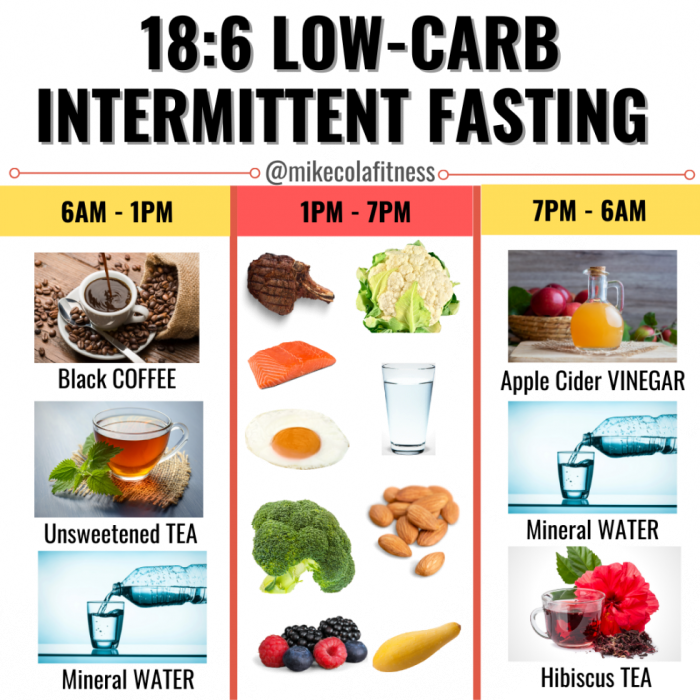
Staying hydrated is crucial during fasting, but choosing the right beverages is equally important. While water is the most basic and essential choice, exploring other options can enhance your fasting experience and provide additional benefits. This section will delve into a range of suitable beverages, considering their calorie content, impact on metabolic processes, and suitability for different fasting methods.
Beverages Suitable for Fasting
During fasting, it’s essential to choose beverages that are low in calories and do not disrupt your body’s natural metabolic processes. Here are some recommended options:
- Water: The cornerstone of hydration, water is calorie-free and helps maintain electrolyte balance, crucial for proper bodily function.
- Unsweetened Tea: Green tea, black tea, and herbal teas offer antioxidants and may promote thermogenesis, a process that burns calories.
- Black Coffee: Coffee, without added sugar or cream, is low in calories and can boost metabolism and improve mental focus.
- Bone Broth: A nutrient-rich broth, often made from bones, cartilage, and vegetables, can provide electrolytes and essential minerals.
- Sparkling Water: A refreshing alternative to sugary sodas, sparkling water can be flavored with fruits or herbs for added taste.
Beverages for Different Fasting Methods
The choice of beverages can vary depending on the type of fasting you’re engaging in. Here’s a table outlining suitable options for different fasting methods:
| Fasting Method | Suitable Beverages |
|---|---|
| Intermittent Fasting | Water, Unsweetened Tea, Black Coffee, Bone Broth, Sparkling Water |
| Time-Restricted Feeding | Water, Unsweetened Tea, Black Coffee, Bone Broth, Sparkling Water |
| Prolonged Fasting | Water, Unsweetened Tea, Black Coffee, Bone Broth |
Preparing and Consuming Beverages During Fasting
To maximize the benefits of these beverages during fasting, consider these tips:
- Stay Hydrated: Aim to drink water consistently throughout your fasting period, especially before, during, and after exercise.
- Choose Unsweetened Options: Avoid adding sugar, sweeteners, or syrups to your beverages. These can disrupt your fast and hinder its benefits.
- Experiment with Flavors: Enhance the taste of water or tea by adding slices of lemon, lime, cucumber, or herbs.
- Warm Beverages for Comfort: Warm beverages like tea or bone broth can be comforting, especially during cold weather or when feeling chilly.
- Listen to Your Body: Pay attention to your body’s signals and adjust your beverage intake accordingly. If you experience excessive thirst, fatigue, or other symptoms, consult with a healthcare professional.
Individual Considerations for Diet Drinks and Fasting
While the general effects of diet drinks on fasting have been discussed, it’s crucial to remember that individual factors play a significant role in determining their suitability during fasting. Factors such as metabolic health, dietary habits, and personal health goals can influence how diet drinks affect your body and your fasting experience.
Assessing Individual Needs and Making Informed Decisions
Understanding your individual needs and making informed decisions regarding diet drinks during fasting requires a comprehensive assessment of your unique circumstances. Here’s a framework to help you make the best choice for your situation:
- Metabolic Health: Individuals with pre-existing metabolic conditions like insulin resistance or diabetes should exercise caution when consuming diet drinks during fasting. Artificial sweeteners may trigger insulin spikes, potentially disrupting the metabolic benefits of fasting. Consulting with a healthcare professional is recommended to determine the suitability of diet drinks in these cases.
- Dietary Habits: If you regularly consume large quantities of sugar-sweetened beverages, switching to diet drinks during fasting might lead to cravings and potential overconsumption. It’s essential to gradually reduce your intake of sugary drinks and explore healthier alternatives like water or unsweetened tea.
- Health Goals: The purpose of your fast influences the suitability of diet drinks. If your goal is weight loss, diet drinks might be helpful in reducing calorie intake. However, if your focus is on improving insulin sensitivity or reducing inflammation, it’s best to avoid artificial sweeteners during fasting.
Personalized Recommendations for Specific Health Conditions
Individuals with specific health conditions or dietary restrictions may need to consider the potential impact of diet drinks on their fasting experience.
- Diabetes: Individuals with diabetes should consult with their healthcare provider before consuming diet drinks during fasting. Artificial sweeteners can affect blood sugar levels, potentially requiring adjustments to medication or insulin dosages.
- Irritable Bowel Syndrome (IBS): Some individuals with IBS may experience digestive discomfort or bloating after consuming artificial sweeteners. If you have IBS, it’s advisable to avoid diet drinks during fasting or choose alternatives like herbal teas or plain water.
- Migraines: Some individuals with migraines report that artificial sweeteners can trigger headaches. If you experience migraines, it’s essential to monitor your response to diet drinks during fasting and avoid them if they exacerbate your symptoms.
Final Conclusion
Whether or not diet drinks break a fast is a complex question with no definitive answer. While some research suggests they may disrupt metabolic processes, more studies are needed to fully understand their impact. Ultimately, the decision to consume diet drinks during fasting depends on individual factors, including metabolic health, dietary habits, and health goals. Consulting with a healthcare professional can provide personalized guidance based on your specific needs.
Clarifying Questions
Are all artificial sweeteners the same?
No, different artificial sweeteners have varying effects on the body. Some may be more likely to disrupt metabolic processes than others.
Can diet drinks affect my sleep?
Artificial sweeteners may interfere with sleep patterns, particularly in individuals sensitive to their effects.
What about sugar-free gum?
Sugar-free gum containing artificial sweeteners may also disrupt fasting, as it can trigger insulin spikes.
While diet drinks are generally considered calorie-free, their artificial sweeteners can sometimes disrupt the body’s natural fasting process. If you’re trying to maximize the benefits of fasting, it’s important to focus on consuming whole, unprocessed foods. This brings us to the topic of protein intake, which is crucial for vegetarians.
To ensure you’re getting enough protein, check out this article on how to increase protein intake in vegetarian diet. Returning to diet drinks, they can also stimulate insulin release, which can interfere with the fat-burning process during a fast.
So, while they may not technically “break” a fast, they might not be the ideal choice for optimal fasting results.
Whether diet drinks break a fast is a topic that often sparks debate. Some argue that the artificial sweeteners in these drinks can stimulate insulin production, potentially hindering the benefits of fasting. However, if you’re curious about the nutritional content of your favorite diet drink, you can find out by checking the label or by using online resources like how to get nutritional facts for my product.
Ultimately, the decision of whether or not to consume diet drinks during a fast is a personal one, and it’s best to consult with a healthcare professional for personalized advice.
Whether diet drinks break a fast is a common question, and the answer depends on the type of fast you’re doing. Some argue that the artificial sweeteners in diet drinks can trigger an insulin response, disrupting a true fast. This brings up the question of whether diet itself can contribute to yeast infections, which is a topic worth exploring.
Can diet cause yeast infection ? While the link between diet and yeast infections isn’t always direct, understanding the factors involved can help you make informed choices about your diet and fasting practices.















